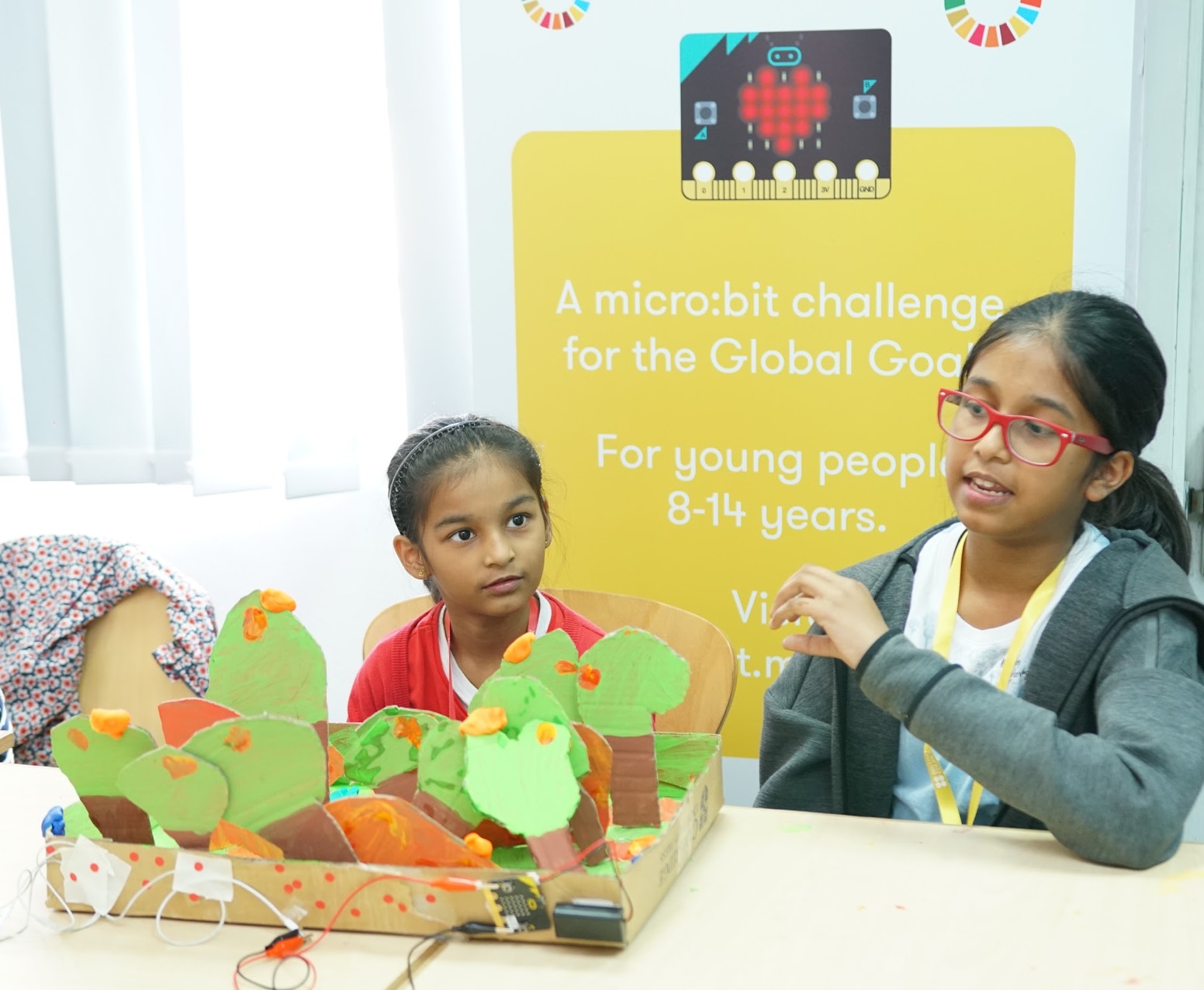do your :bit
bringing computer coding to a beach in Mauritus
to inspire social change
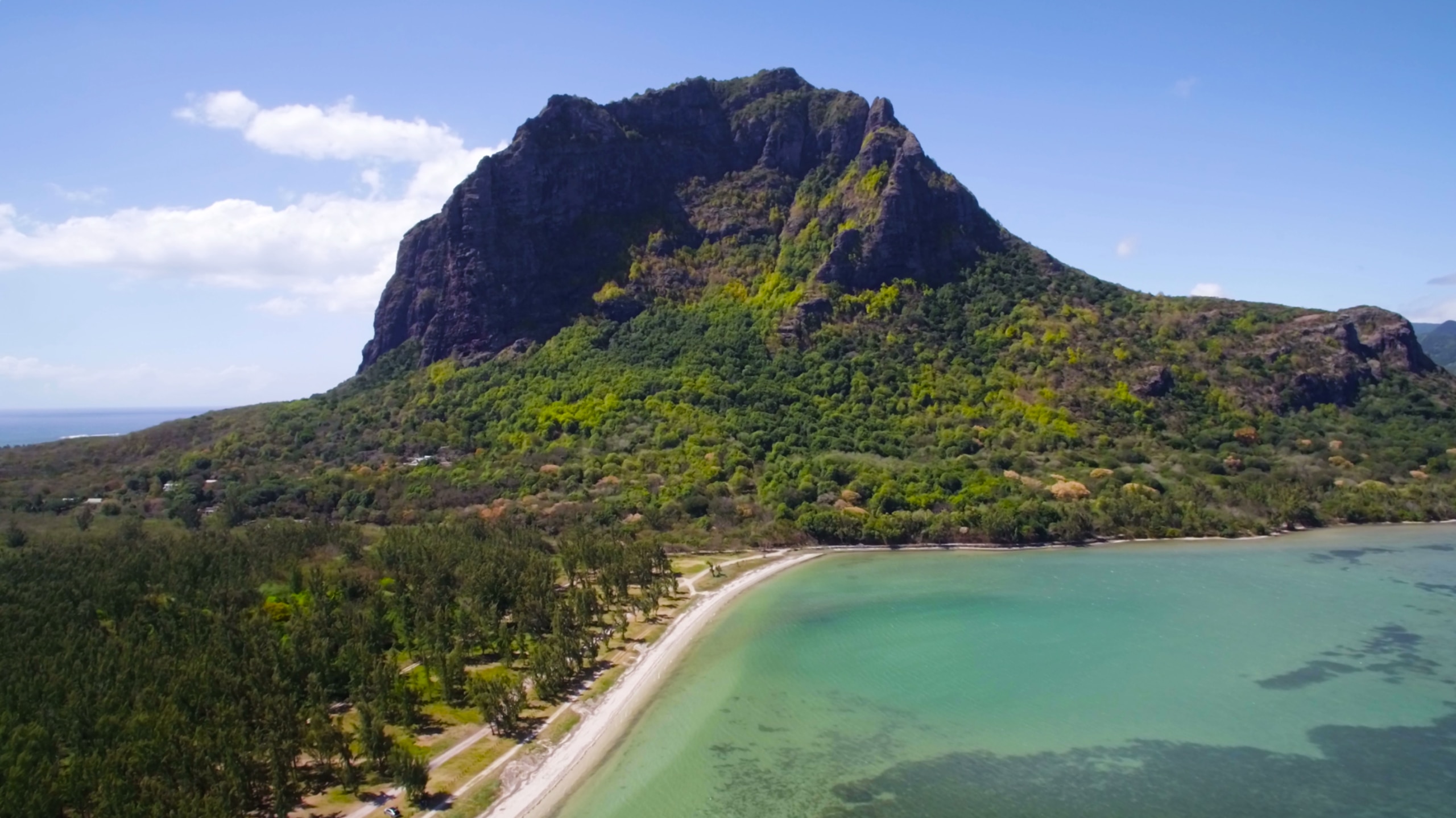
As a child, Ada Lovelace (1815 –1852) dreamed of inventing a steam-powered flying horse, and her wild imagination led her to become the world's first computer programmer.
The power of imagination...
In the spirit of inspiring creativity, we invited a group of children from the island of Mauritius to learn about using computer coding to tackle real-world environmental problems.
We hosted a hackathon which began at the beach, sparking ideas for some incredible inventions...
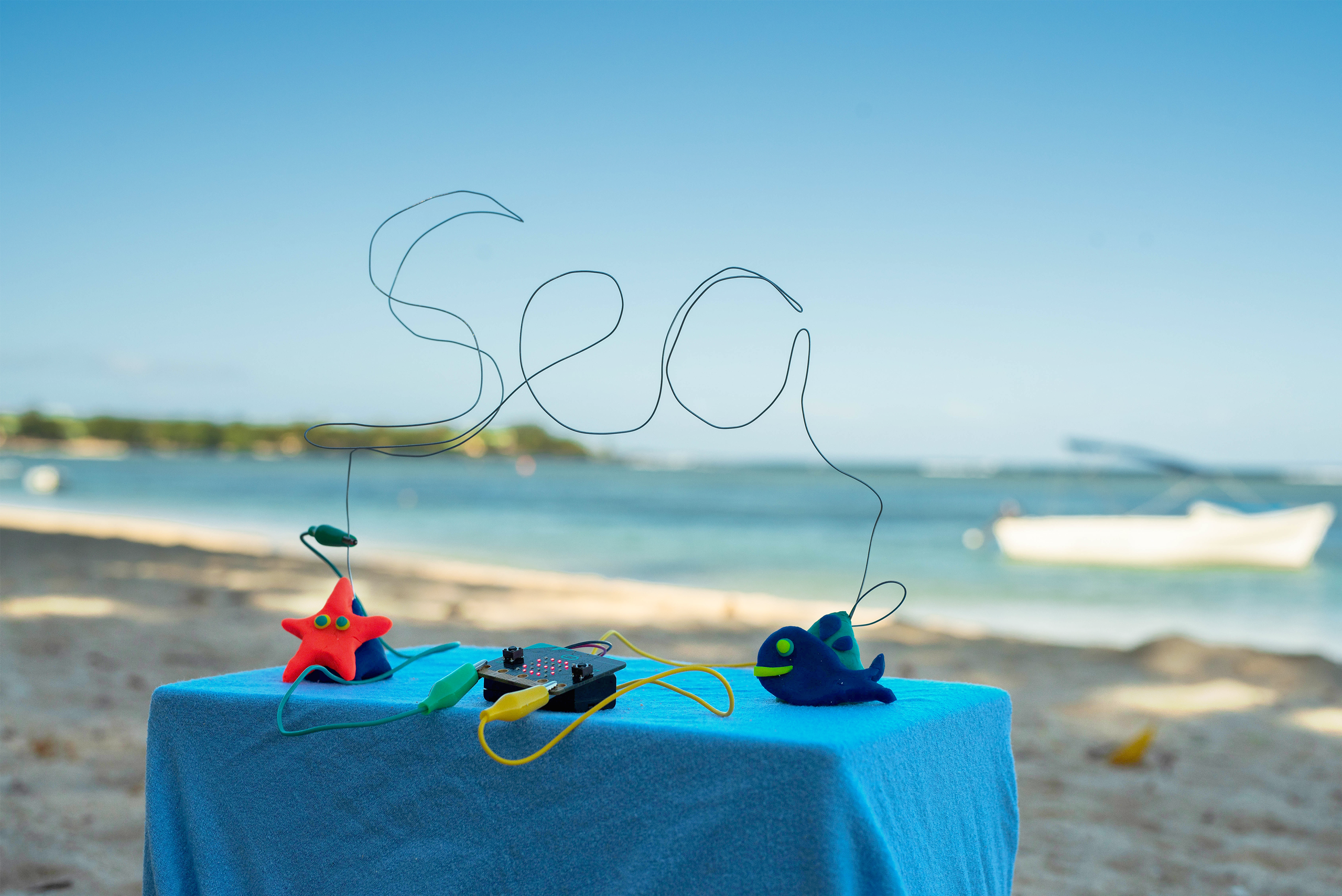
"Our island faces challenges
that will only be solved by the most creative minds"
Dr. Yashvin Neehaul, Mauritius Oceanography Institute
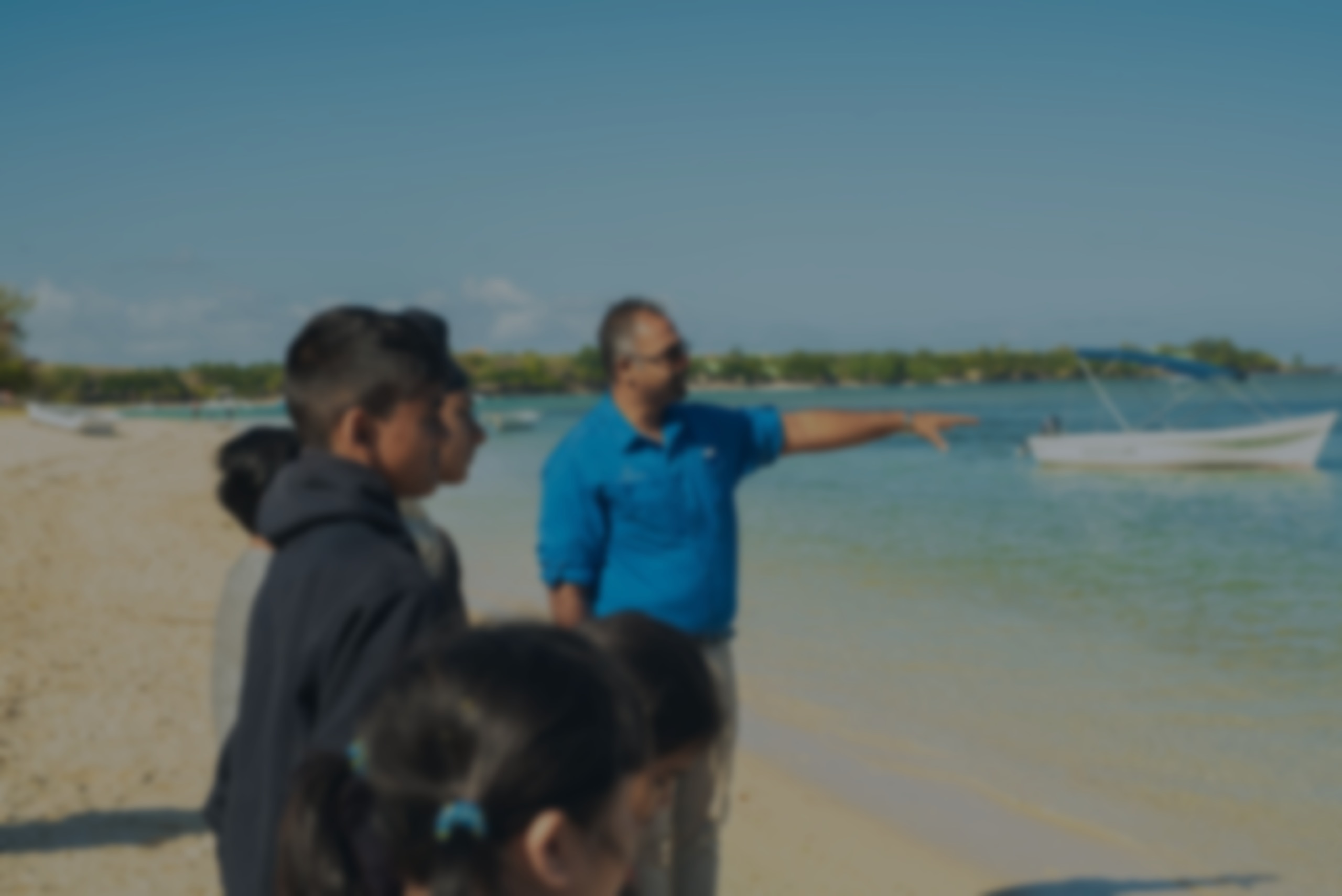
What is a hackathon?
A hackathon is an event designed to encourage collaborative problem solving.
The aim of our hackathon? To encourage students to think about the invisible threats to climate change and kick-start ideas for some incredible inventions using a BBC micro:bit.
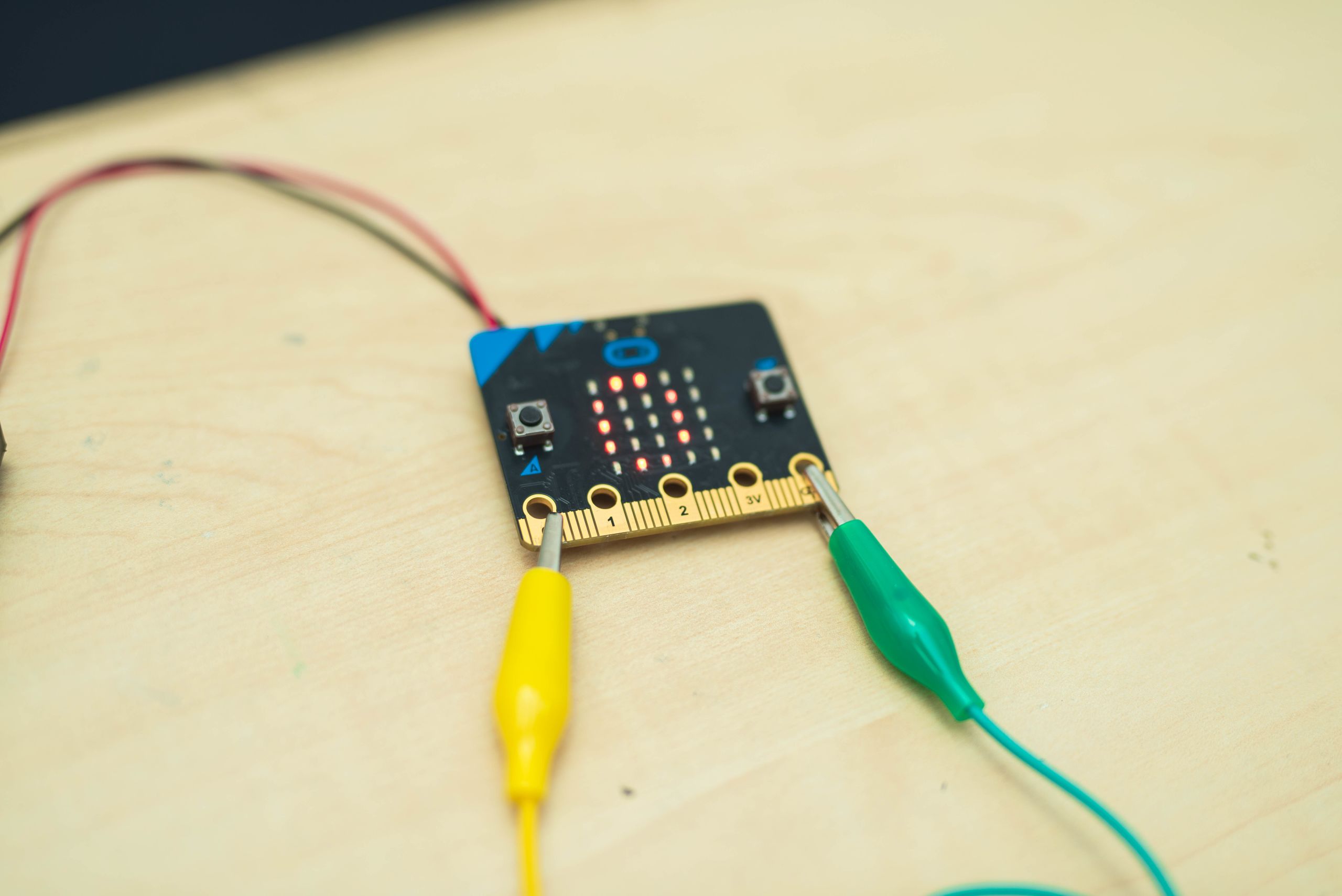
The BBC micro:bit is a pocket-sized programmable computer, designed to help children learn the basics of computer coding and computational thinking.
The BBC micro:bit is a pocket-sized programmable computer, designed to help children learn the basics of computer coding and computational thinking.
Our hackathon began at the beach, where we were joined by two local environmental experts from the Mauritius Oceanography Institute.
They shared the immense environmental challenges facing the island to engage and inspire the children to come up with creative ways to protect their habitat.
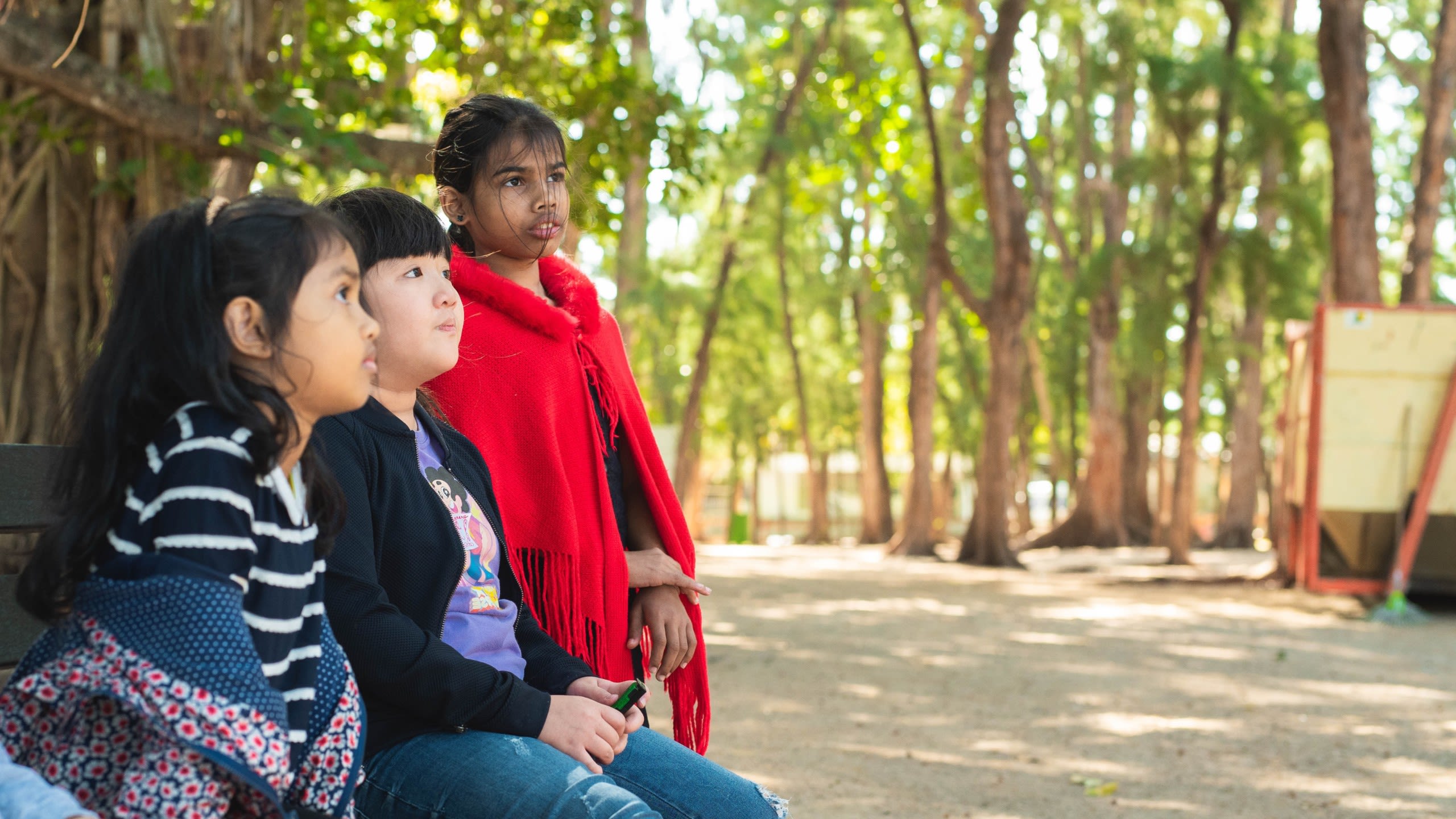
Half of the children had never learnt about coding before. One girl held a micro:bit for the first time at 8am on the beach... by 3pm she'd programmed the device to sound if temperatures above 60°C were sensed, alerting emergency services to possible forest fires!
Tashi, age 11, with a cardboard prototype of her forest fire prevention invention
Tashi, age 11, with a cardboard prototype of her forest fire prevention invention
In the sunshine my micro:bit showed 30°C, and in the shade 22°C. Mandeep climbed a giant tree and found the coldest patch at 20°C! That's when I thought of (making) a device that could protect animals from overheating...
Back at the British Council Teaching Centre in Rose-Hill, West Mauritius, we explored the functions of the micro:bit device further.
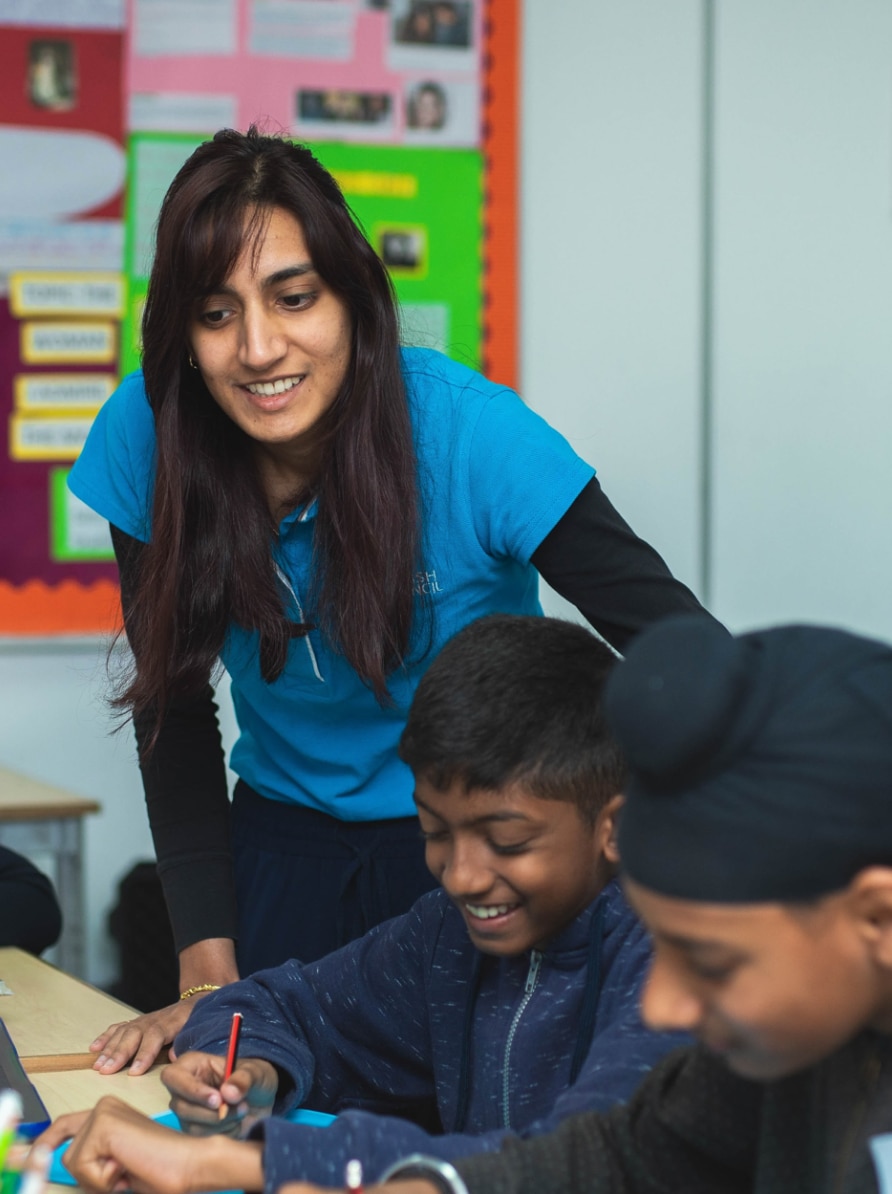
After a hands-on afternoon making cardboard prototypes and coding the micro:bits, the group turned the programming theory they'd learned into practice.
Using the micro:bit, each child created a unique solution designed to tackle some of the environmental challenges they'd discussed on the beach earlier that day.
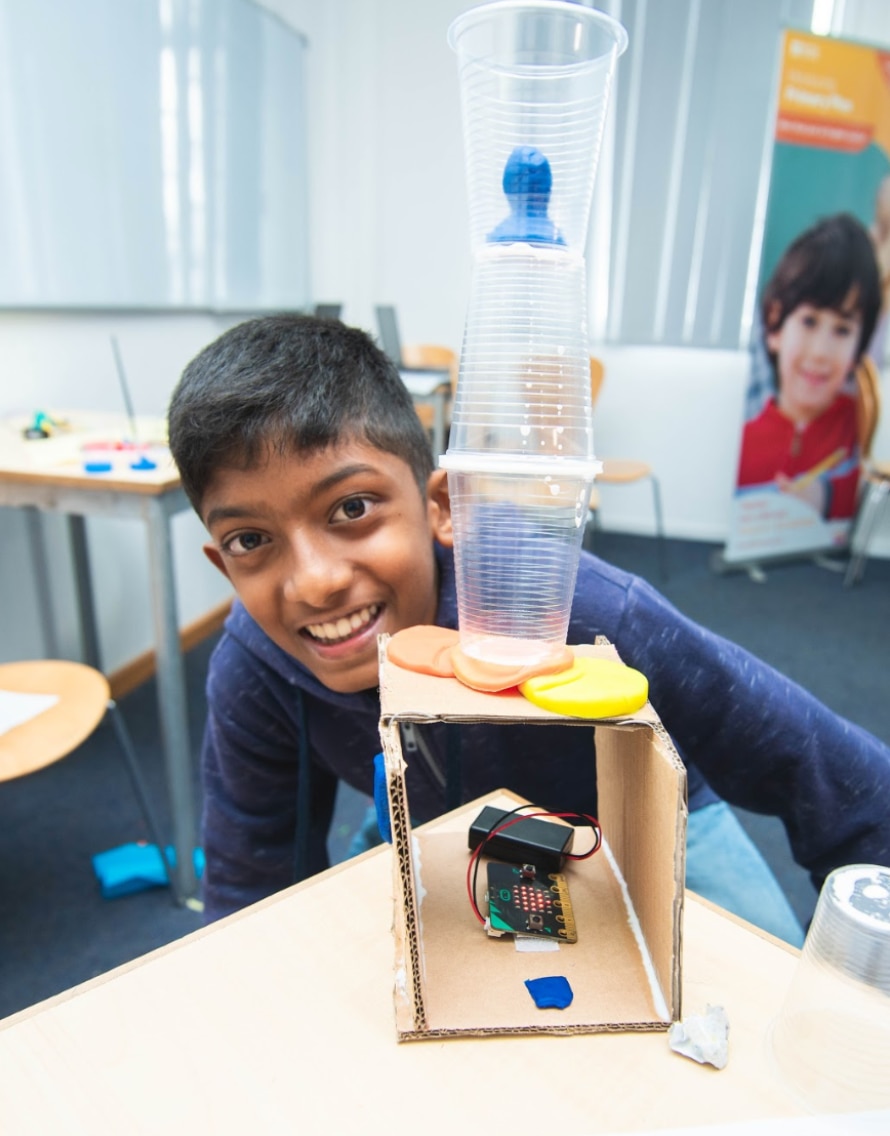
Later, they presented their inventions to one another and their parents before entering their ideas into a competition called do your :bit.


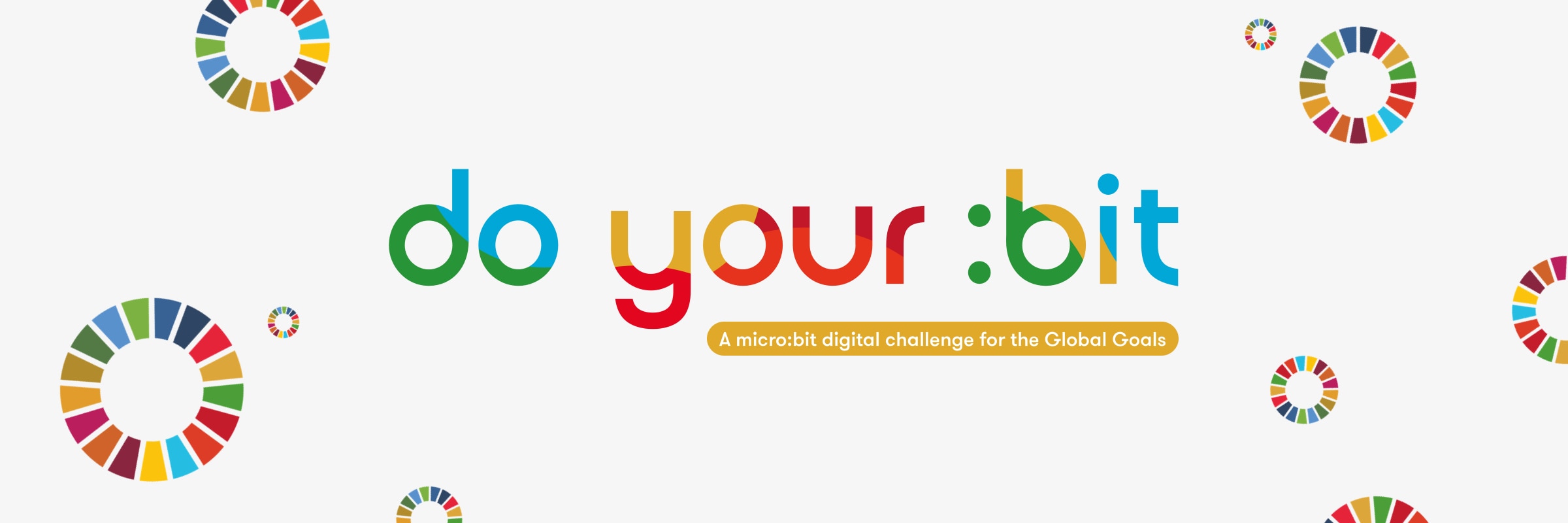
The opportunities for micro:bit inventions are, quite literally, endless...
do your :bit is a global competition challenging children to design solutions to real-world problems using the micro:bit. Just like the ideas the children from Mauritius created.
The do your:bit challenge tasks children to think of innovative ways to use a micro:bit to help protect life on land and below water.
As part of their hackathon, the children in Mauritius made drawings to help them start thinking about the environmental challenges around them.
As part of their hackathon, the children in Mauritius made drawings to help them start thinking about the environmental challenges around them.
How to run a hackathon of your own:
Centred on developing imagination through play, experimentation and making, we worked with the Institute of Imagination to design a guide to running a hackathon. The guide contains tools and techniques to help educators run a hackathon.
We've also produced a classroom resource to work alongside the guide. The resource will help you to identify problems related to the global goals and collaborate with others to tackle them.

"The importance of imagination cannot be underestimated. It's not about giving kids answers, but encouraging them to think creatively to find their own."
Paul Clifford, educator at the Institute of Imagination
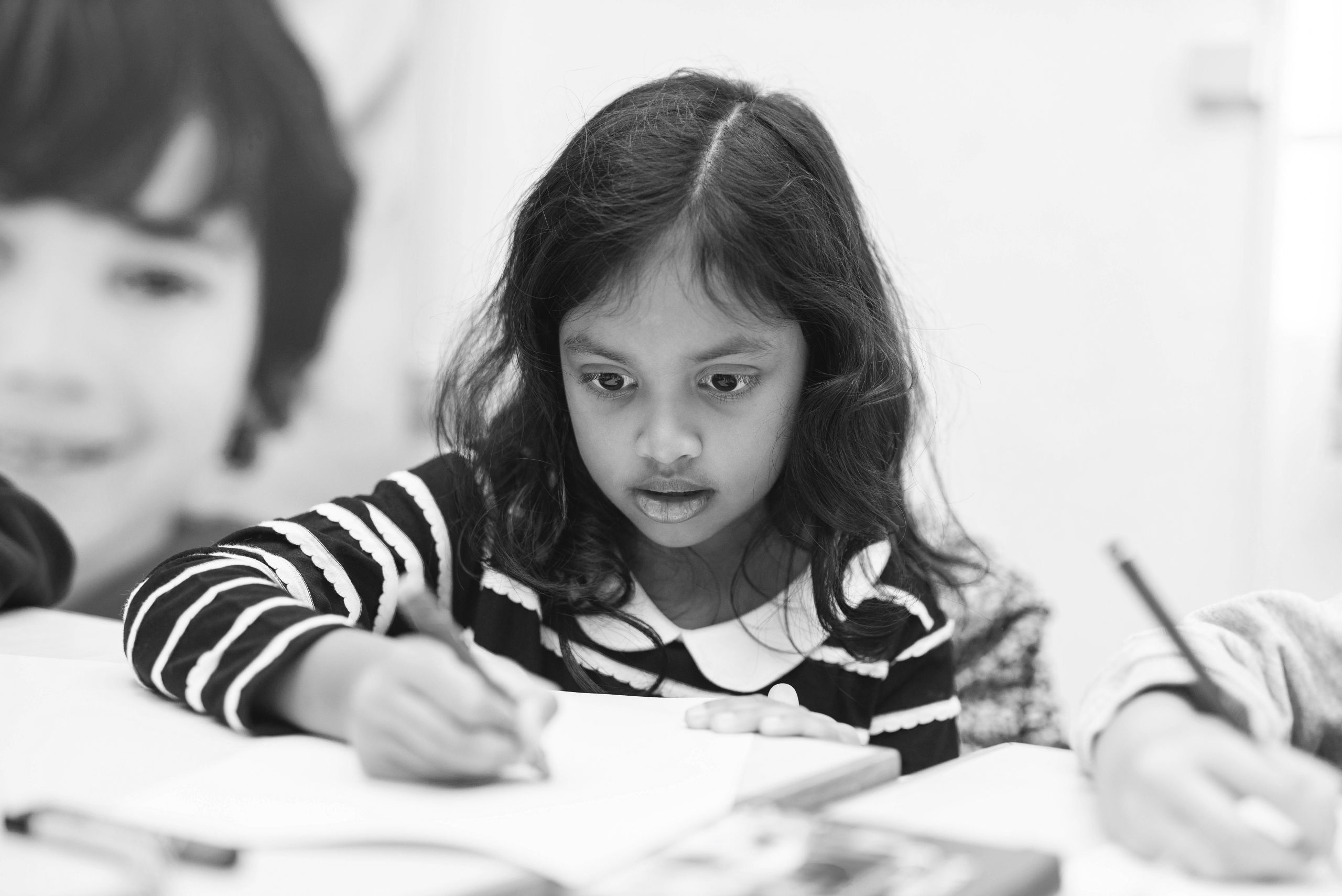
According to the World Economic Forum report, 65 per cent of children entering primary school today will work in jobs that don't yet exist.
And Mauritius is getting ready...
Currently ranked as the most competitive economy in sub-Saharan Africa, Mauritius continues to transform itself as a 'digital country', with a major focus on advancing innovation and technology.
We're aiming to introduce computer coding - using the micro:bit - in schools across the country to strengthen childrens' creative thinking and problem solving skills.
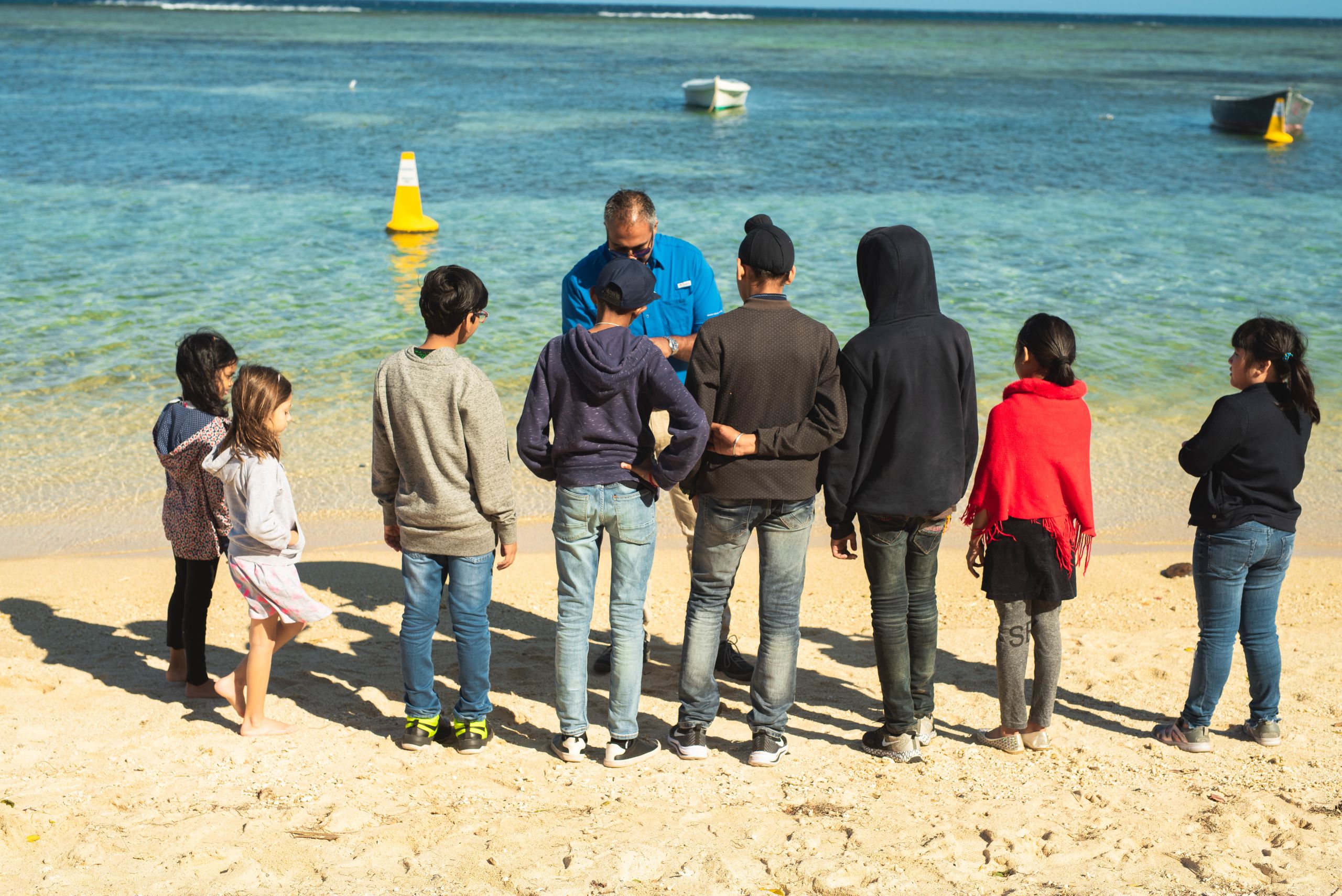
There are 282,000 children living in Mauritius age 15 or younger
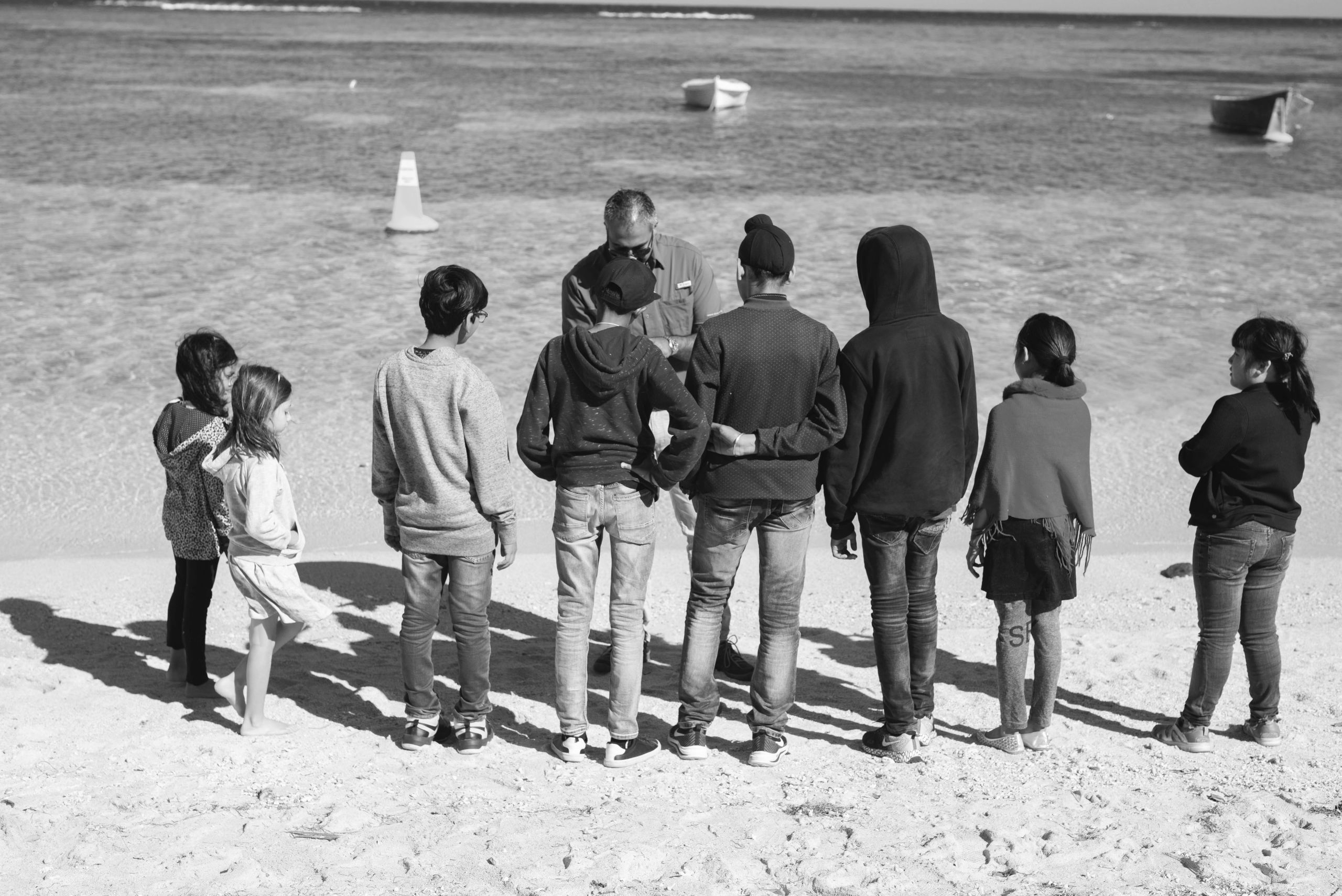
By helping children in Mauritius learn new digital skills, our vision is to inspire the next generation of young innovators.
We want the next Mark Zuckerberg to be from Mauritius! The aim is for students to get exposure to coding, innovation and STEAM at a very early age.
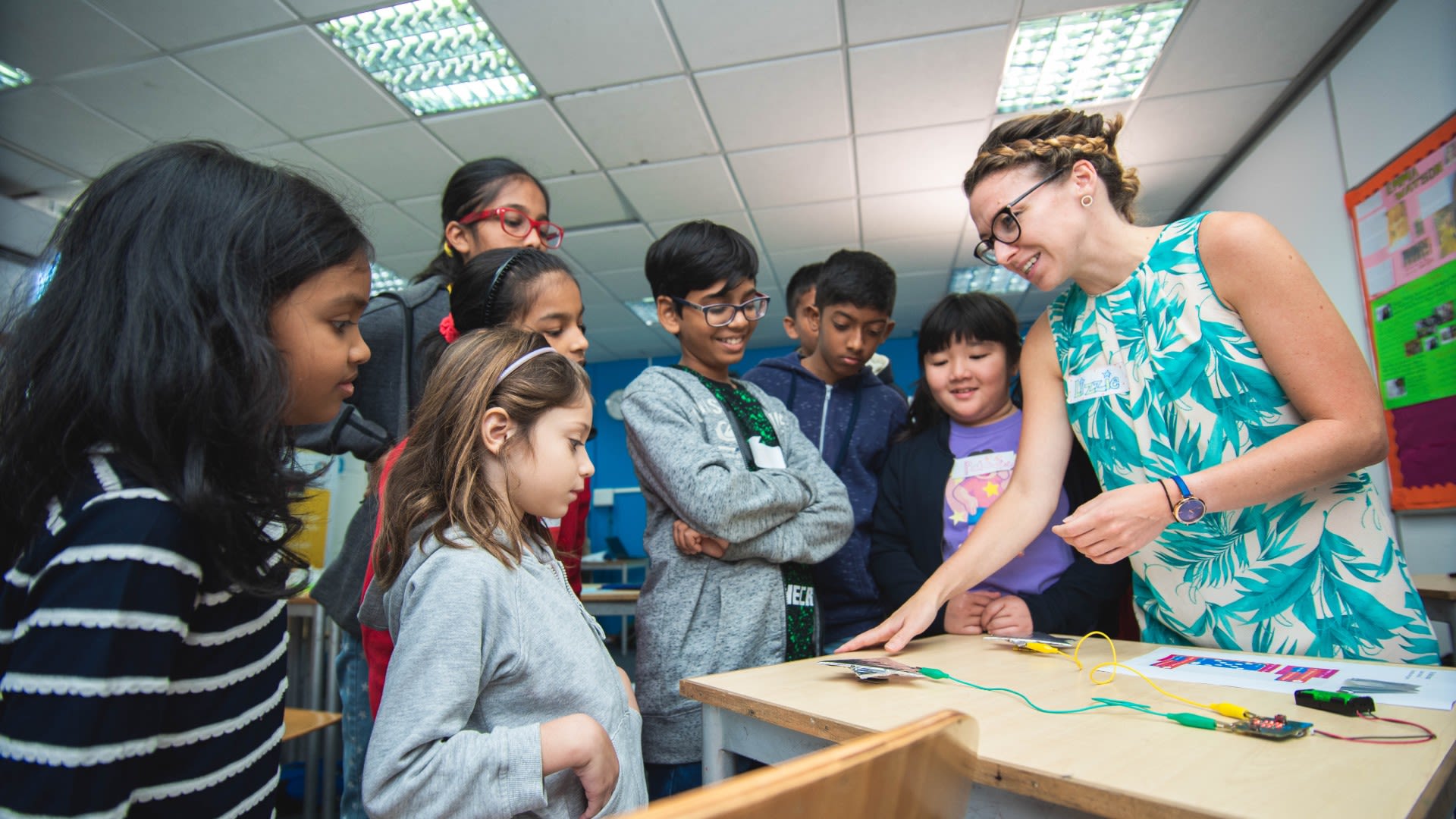
A British Council facilitator working with the children from Mauritius back in the classroom during their hackathon.
A British Council facilitator working with the children from Mauritius back in the classroom during their hackathon.
We hope to drive an attitudinal shift in student's who wouldn't ordinarily consider coding as a subject they'd enjoy, to a realisation that they have the capabilities and confidence to want to learn more.
Digital education is a priority across the 'Cyber Island', with its tech sector an engine for growth and employment.
Mauritius Vision 2030 report
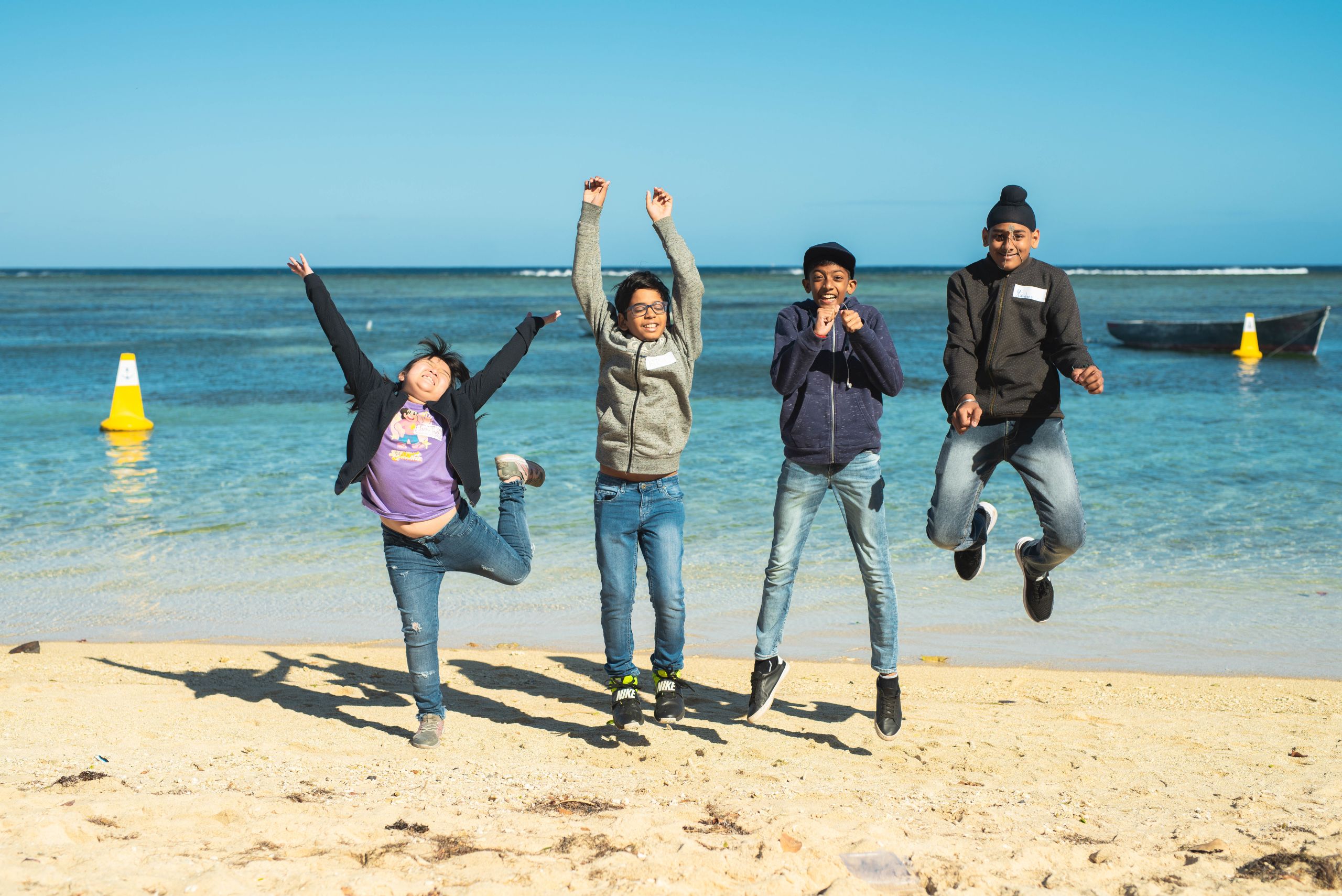
We're working to close the digital skills gap by creating opportunities to support digital skills education.
For more about our micro:bit activity see here.
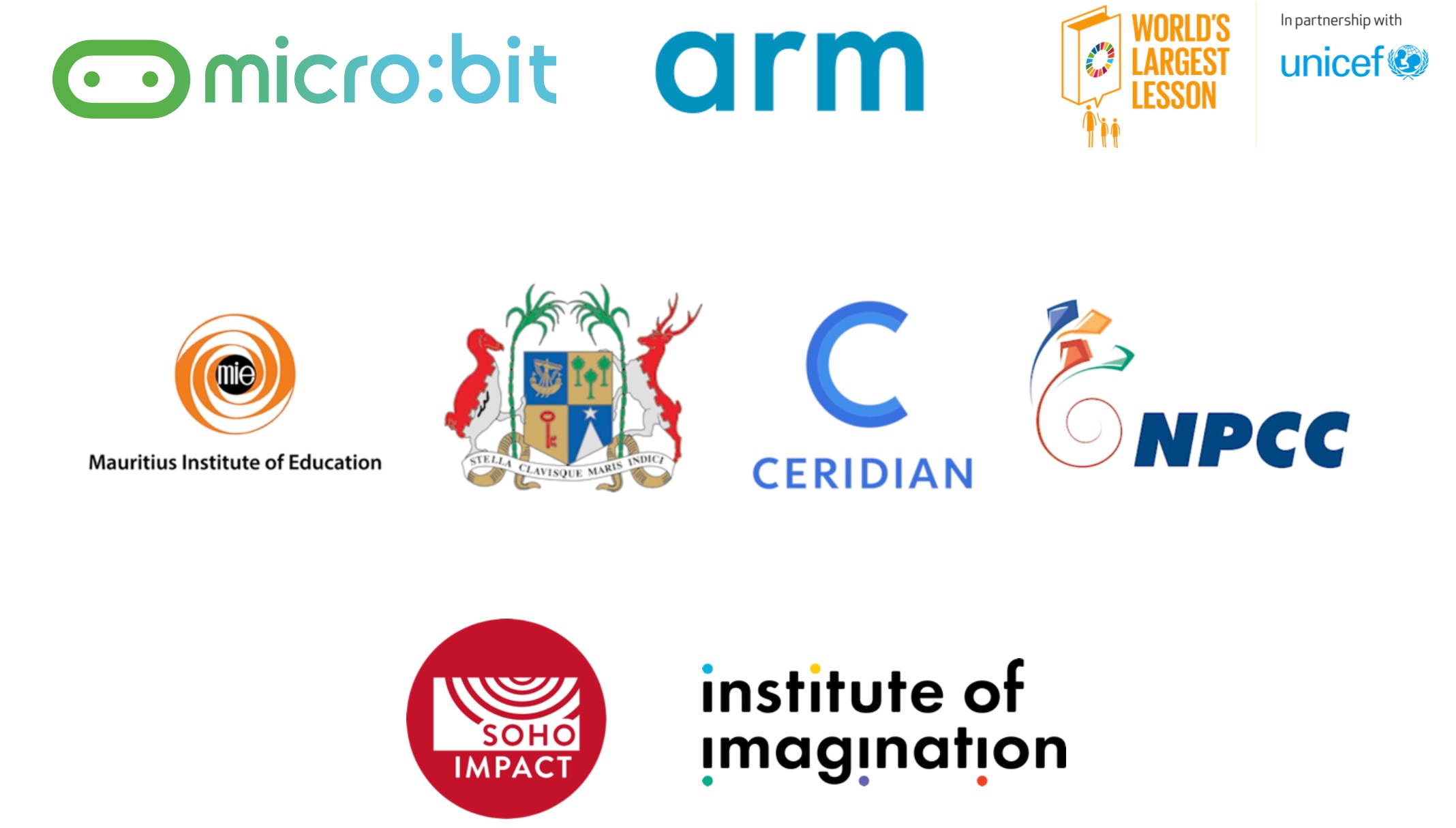
with special thanks to our partners for all their ongoing support
with special thanks to our partners for all their ongoing support

